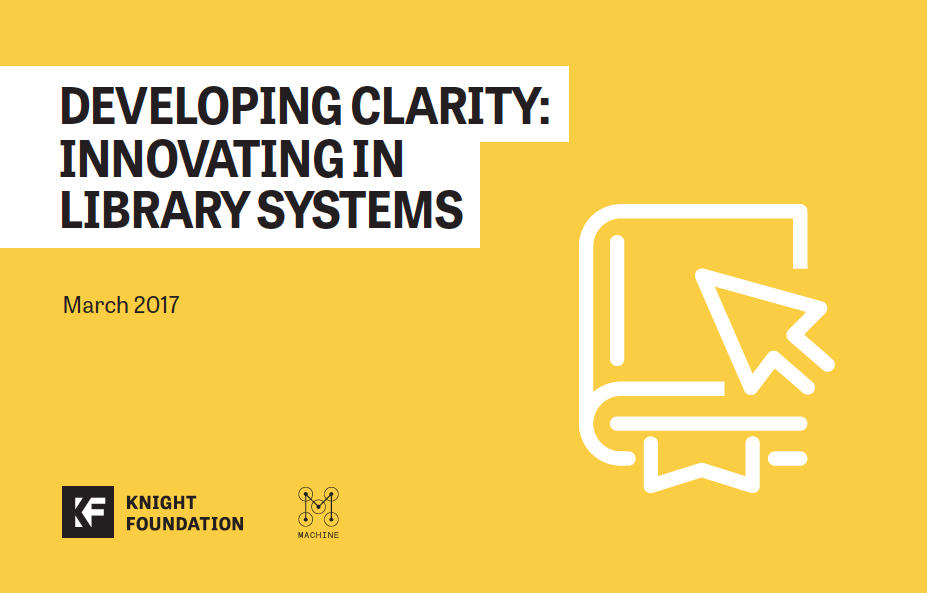The John S. and James L. Knight Foundation has a history of supporting libraries. We made our first library grant to the John F. Kennedy Presidential Library in 1964, and our first grant to an urban public library was to the Akron-Summit County Public Library in 1971. Since then we have made nearly 200 library grants totaling more than $12 million.
In 2014, our appreciation of libraries’ importance to civic life deepened for two reasons. First, that spring our hometown library system in Miami-Dade County, Florida, faced the prospect of a 40 percent budget cut. Following Knight-funded polling that revealed broad opposition to the cut, combined with public pushback, the county restored the funding. Simultaneously, we ran a Knight News Challenge on strengthening the internet that awarded $3.5 million in grants to 19 projects. To our surprise, three of the winners were libraries. That summer, I sat in on a lunch discussion with the heads of three big-city libraries and a mayor from another city. The mayor was stopped short when he heard the array of services the libraries were developing.
The confluence of those insights enabled us to see the importance of libraries in the shift to the digital age and inspired us to launch the first of two Knight News Challenges. Through two open calls for ideas, we invested nearly $5 million in 36 projects. During the process of running those challenges, we learned about the state of innovation in libraries, from both librarians and non-librarians. In May 2016, at the end of our review of News Challenge entries, we heard a desire from the library leaders in the room to learn more about what innovation means in a library context.
This report is a result of the questions we heard as we talked to people who lead, work in, use and love libraries. What do urban public libraries need to succeed? How might they leverage their unique assets of trusted public spaces, a professional workforce trained in information needs, and the openness to collaborate to maximize their value to the public?
Today, libraries are more important than ever to American democracy. At a time of unprecedented public distrust in institutions, people still believe that libraries have an essential role to play in our communities. As we search for new ways of improving the flow of accurate information, of connecting with one another, and preparing ourselves for an ever-more digital future, libraries are being called on to do more and more. We hope this document advances libraries’ ability to fulfill that mission.
